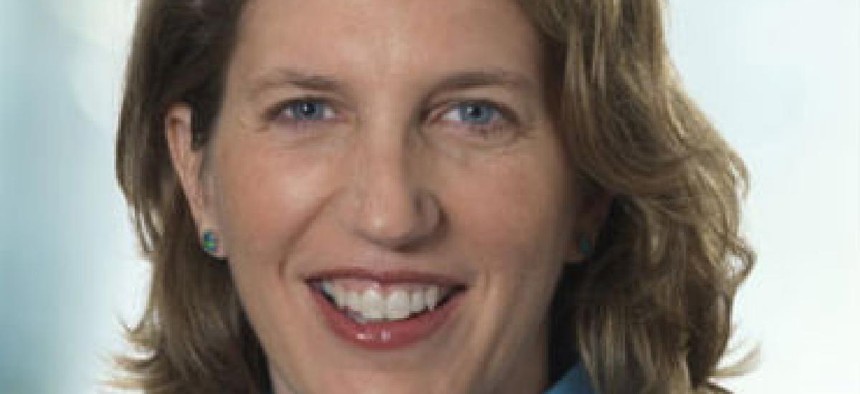Challenges await the next OMB head

Sylvia Mathews Burwell, President Barack Obama’s pick to head the Office of Management and Budget, is expected to be easily confirmed. That may be the last easy thing about the job.

Sylvia Mathews Burwell (Photo Courtesy of the Walmart Foundation)
President Barack Obama’s pick to head the Office of Management and Budget is not expected to face much opposition in her confirmation hearing. But Sylvia Mathews Burwell should not expect the same easy road when managing the fiscal agenda, according to one expert.
Burwell, who has been president of the charitable arm of Walmart since January 2012, was announced March 3 as a nominee to replace OMB’s acting Director Jeffrey Zients. Despite her more recent stint in the private sector, Burwell is no stranger to public service. From 1998 to 2001, she served as OMB’s deputy director, and prior to that, as deputy chief of staff to President Bill Clinton and chief of staff to Treasury Secretary Robert Rubin.
Although the specifics, including the date, of Burwell’s confirmation hearing remain unknown for now, anything other than smooth sailing would come as a surprise, said Tim Young, senior manager at Deloitte Consulting LLP.
“The OMB director is not the type of cabinet-level secretary that the Senate typically is willing to go to war over,” he said. “Historically, it has been thought of as the president’s choice… I can’t recall an OMB director that sustained significant challenges.” (The White House is not taking any chances, however. Roll Call reported that Zients, who is thought to be a candidate for the U.S. Trade Representative post, will remain in his acting role until a permanent director is confirmed.)
Burwell's new role will be challenging, but she will have many opportunities to gain efficiencies across the federal government, said Karen Evans, a partner at KE&T Partners, LLC and former administrator of OMBs Office of Electronic Government and Information Technology.
Burwell "will have at her disposal one of the smartest staffs with the federal government as the OMB staff is extraordinarily professional and possesses the skills and capabilities to provide to her the analysis she will need to make the tough recommendations needed going forward," Evans said.
Burwell’s real challenges lie in the multifaceted role of the OMB director. Though post is lower profile than many others in the cabinet, it serves a vital function in the White House. The director's responsibilities include designing the president’s budget proposal in Congress, and the office itself helps coordinate policy across agencies on a wide array of topics.
Young, who previously served as deputy administrator at OMB, said he expects Burwell to focus on new policy reforms more domestic in nature than on entitlements, such as mandatory spending for Medicare, Medicaid and Social Security.
“In light of President Obama’s public eagerness to pursue a new policy agenda to help reform immigration, gun safety and early-education initiatives, among others, I believe this could lead Mrs. Burwell to add to the existing fiscal agenda rather than help chart a new one that could potentially comprise a deal on entitlement reforms and revenues.”
Ultimately, Burwell’s confirmation hearing will shed light on the role's top challenges, which likely will entail working with congressional leaders on a new continuing solution before the current one expires March 27. It will not be an easy task, considering the recent political gridlock that has plagued Washington.
Despite the roadblocks ahead, the support in Burwell’s abilities from the top has remained unwavering. When Obama announced his nomination, he highlighted Burwell’s prior OMB experience and how she helped expand Walmart Foundation’s charitable work. “So Sylvia knows her way around a budget,” the president concluded. Depending on when she gets confirmed, Burwell could also be a key player in negotiating an omnibus appropriations bill to keep the government operational throughout the fiscal year, Young said.
“What it really comes down to is the Senate’s willingness to coordinate the confirmation hearing -- it’s going to be sooner rather than later, based on the fact she doesn’t have strong opposition on the nomination,” he said.
NEXT STORY: Can sequestration polish GSA's image?


